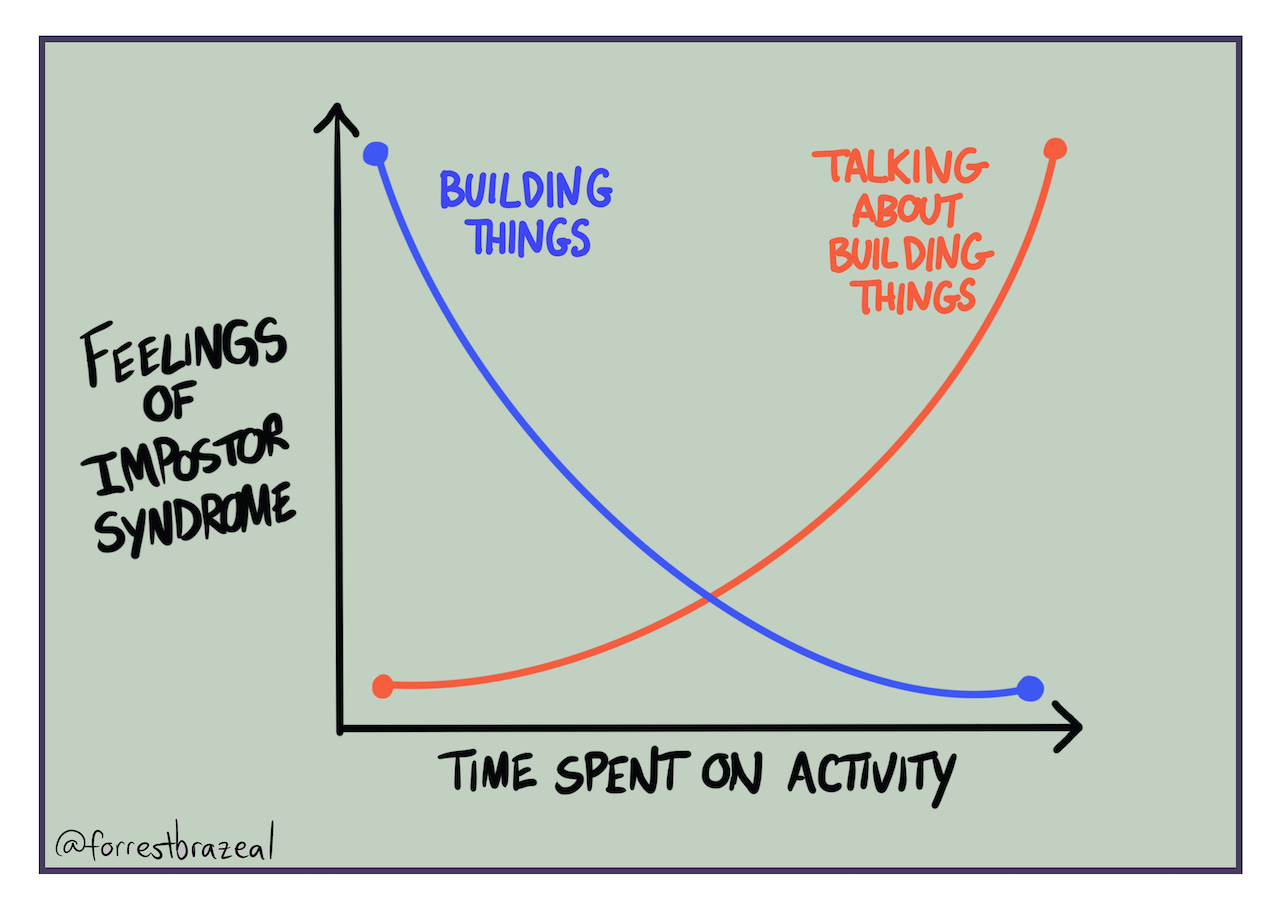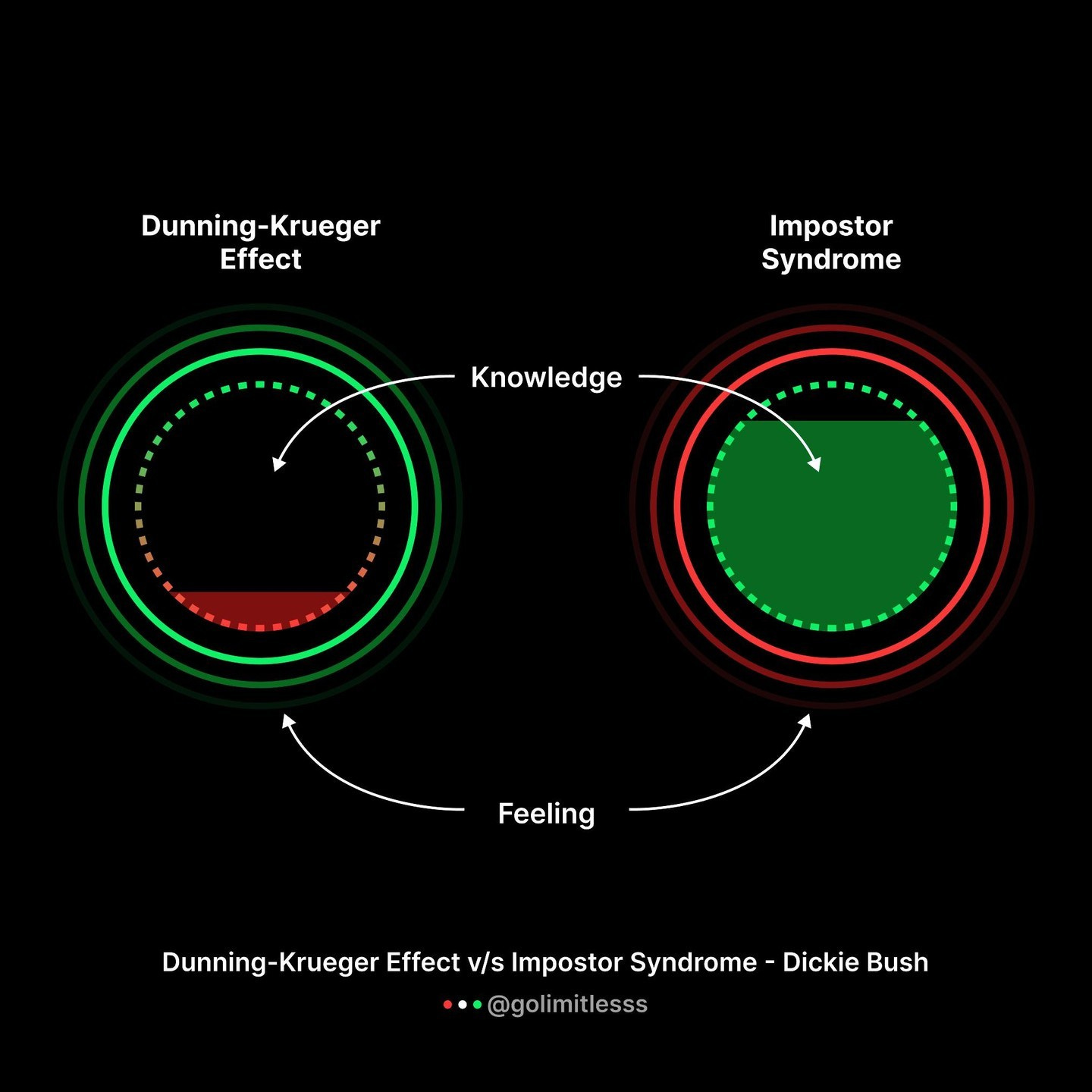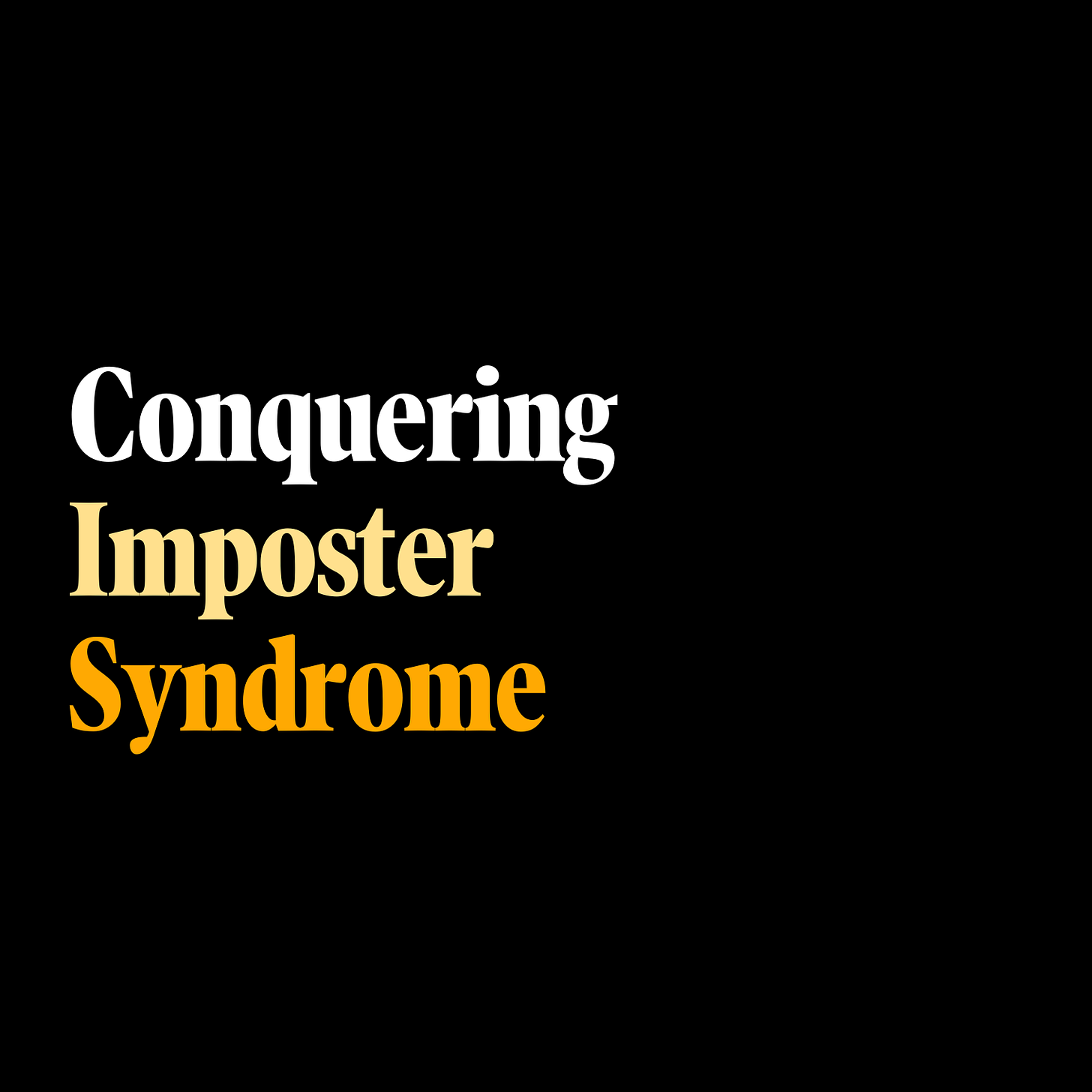You've likely experienced the nagging doubt and insecurity that characterizes imposter syndrome. That feeling that despite your accomplishments, you're not truly qualified for your role and it's only a matter of time until you're exposed as a fraud. This illustration by Forrest Brazeal insightfully captures a key driver of these feelings - the more time we spend talking about building things rather than actually building them, the more inadequate we tend to feel.
The simple message is that active problem-solving and hands-on experience are the antidotes to imposter syndrome. By focusing our energy on "doing", we give ourselves the opportunity to prove our capabilities to ourselves. Each bug fixed, feature shipped, or technical challenge overcome becomes evidence we can use to combat our own self-doubt. Conversely, when too much of our time is spent analyzing, discussing or theorizing - in meetings, forums, or our own minds - insecurities have room to grow.
While the Dunning-Kruger effect and imposter syndrome sit on opposite ends of the confidence spectrum, they share a common cure - taking action. By engaging in the work, whether that's writing code, designing interfaces or scoping features, we gain real-world feedback on our abilities. Repeatedly confronting challenges gives us the data points to accurately calibrate our self-perception, landing in the sweet spot between overconfidence and self-doubt. With each iteration, our competence grows while our confidence stabilizes, breaking the cycle of delusion and despair.
This dynamic is especially relevant for creative fields that require continuous learning and growth. The body of knowledge is so vast that even the most seasoned professionals only master a small fraction. As one engineer explains, "If you work really hard and spend your life doing this job, you might understand about 1% of the body of software engineering. Yes. One percent. If you are lucky." Accepting the inevitability of knowledge gaps is an important step towards overcoming imposter syndrome.
In fact, not having all the answers is a normal part of the job. Technology evolves so rapidly that everyone, regardless of tenure, is continuously pushed beyond the boundaries of their expertise. An experienced engineer shares that "On nearly every project I have worked on there is some piece of it where I start off with very little idea of what to do with it." The key is reframing unfamiliarity as an opportunity to problem-solve rather than a personal shortcoming. They continue, "But what I am, and what most successful software developers are, is pretty much an expert at solving problems. It does not matter if it is a problem I have never seen, an industry I have never been in, or a technology I have never used, I am really good at just breaking it down and learning how to get by."
Developing this problem-solving mentality often requires a mindset shift away from perfectionism and towards growth and iteration. We need to grant ourselves permission to not have everything figured out from the start. Another engineer suggests this reframe: "You aren't expected to solve the problems at hand - that is what engineers do. We solve shit." Accepting that the path forward won't always be clear can help ease the pressure we put on ourselves to immediately have the perfect solution.
Beyond shifting our own mindset, opening up to collaboration can be a game changer for keeping imposter syndrome at bay. The same engineer shares "My career took off when I stopped trying to solve shit by myself and started talking to others and asking for help, insights or just for a sounding board. Pro-tip - most other people don't have the solution to complicated engineering issues on their finger tips. I'll suggest dead-ends and things that don't work. That is part of the process." Realizing that even the most accomplished professionals rely on teamwork and collective brainstorming can help us feel less alone in our struggles.
Of course, simple camaraderie has its limits - those conversations are best focused on concrete problem-solving rather than ruminating on insecurities. The original graph's message to spend less time "talking about building things" still applies in collaborative contexts. Dwelling excessively on challenges without taking action is likely to intensify doubts, even when we have company. Conversations are most productive when they move us towards experimentation and implementation.
Types of imposter syndrome
Here is a useful framework for understanding how different personality traits and work styles can contribute to or counteract imposter syndrome:
The "Perfectionist" and "Overworker" types are especially prone to imposter syndrome - their impossibly high standards and tendency to overcompensate through long hours leave them feeling chronically inadequate despite objectively strong performance. On the flip side, "People pleasers" and "Self diminishers" undermine their own sense of competence by constantly seeking external validation and downplaying their accomplishments.
The "Procrastinator" type illustrates how imposter syndrome can become a self-fulfilling prophecy - by putting off work out of fear of failure, procrastinators elicit the negative outcomes they're trying to avoid. While delaying may provide temporary relief from anxiety, it ultimately exacerbates feelings of fraudulence when subpar work must be submitted at the last minute.
To feel like a competent contributor, all these types must find a middle ground between the unrealistic expectations of perfectionism and the avoidant behaviors of self-sabotage. This underscores the importance of the "keep doing" antidote - consistently engaging in challenging work is the only way to break out of these destructive patterns and develop an accurate sense of self-efficacy.
Anchor on doing
To put these strategies into practice, we can develop habits that keep us anchored in "doing":
Reframe your inner dialogue: When you catch yourself thinking "I'm not good enough" or "I don't know enough," remember that everyone has knowledge gaps. Instead, try "I'm learning and growing" or "I have a track record of figuring things out."
Schedule dedicated 'doing' time: Block off uninterrupted time on your calendar for hands-on work. Turn off notifications, find a quiet space, and commit to making tangible progress on a task, no matter how small. Protect this time fiercely. I credit this (deep “doing time” work) for keeping me productive.
Experiment with timeboxing: For your next project, set a fixed time limit for research and planning before diving into execution. Notice how this constraint forces you to prioritize and make decisions. Adapt the timeframes as you learn what works best for your working style.
Find a collaborator: Identify a trusted colleague, peer or mentor who can serve as a thought partner. When you get stuck, reach out to talk through the problem and brainstorm solutions together. Chances are, they've been there too.
Conduct a weekly review: At the end of each day or week, reflect on your accomplishments and learnings. Write down at least three things you're proud of and three things you want to improve. Celebrate the wins and reframe the losses as opportunities for growth. I personally find this really cathartic.
By operationalizing a bias towards action, we can train our brains to focus on problems to solve rather than the myriad ways we might fall short. We may never fully eradicate imposter syndrome - even the most accomplished engineers report occasional flare-ups decades into their careers. What we can do is build up our resilience to keep moving forward despite those doubts.
Conclusion
Each time we're faced with the option to build something or talk about building something, we have the opportunity to choose the path of growth over insecurity.
Consistently betting on our ability to figure things out as we go - with the help of others - is what will make the difference in the long run. We don't need to have all the answers to make meaningful progress.
We just need to keep showing up to the work of solving problems and trust that with each forward step, our confidence will grow along with our capabilities.









Brilliant article man! I totally agree. Everything changed when I decided to take action. Much appreciation🙏
Last one got me